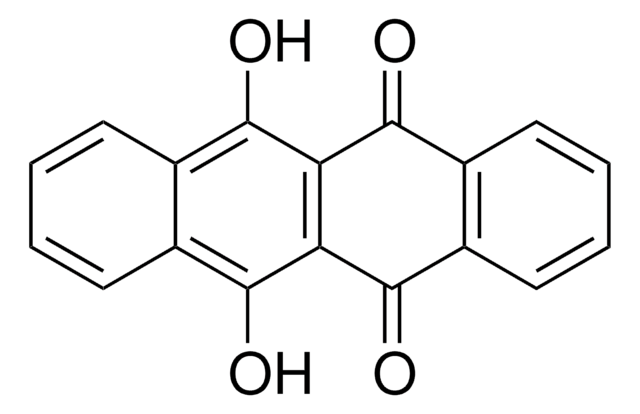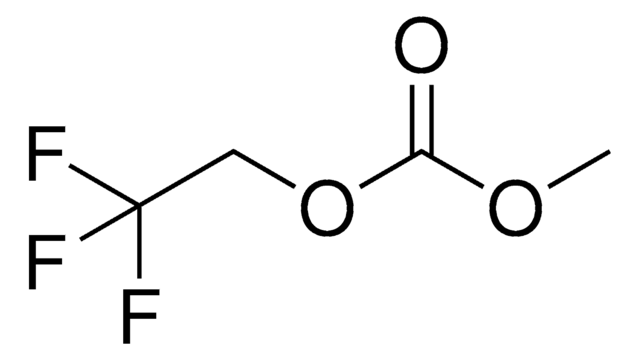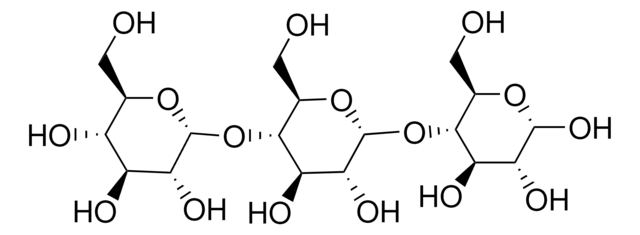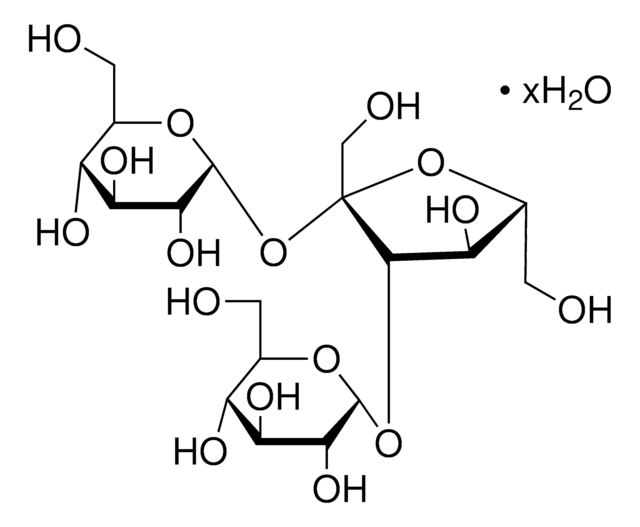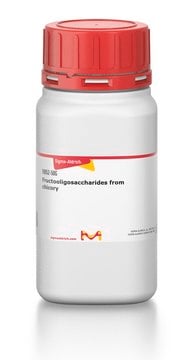Recommended Products
biological source
corn
Quality Level
description
dextrose equivalent 15.0 - 20.0
form
powder
mp
240 °C (dec.) (lit.)
InChI
1S/C6H12O6/c7-1-3(9)5(11)6(12)4(10)2-8/h1,3-6,8-12H,2H2/t3-,4+,5+,6+/m0/s1
InChI key
GZCGUPFRVQAUEE-SLPGGIOYSA-N
Looking for similar products? Visit Product Comparison Guide
General description
Maltodextrin is a saccharide polymer that can be classified as a carbohydrate. It can be produced by acid hydrolysis of the starch. The powdered material formed after purification and spray drying can be used in a variety of food and beverage products. It can be used as a good source of energy in food products with a value of 16 kJ/g.
Application
Maltodextrin can be used as a binding additive for 3D printing manufacturing. It can be used as a forming agent in the preparation of soya bean sprout extract.
Storage Class Code
11 - Combustible Solids
WGK
WGK 1
Flash Point(F)
Not applicable
Flash Point(C)
Not applicable
Personal Protective Equipment
dust mask type N95 (US), Eyeshields, Gloves
Choose from one of the most recent versions:
Certificates of Analysis (COA)
Lot/Batch Number
Don't see the Right Version?
If you require a particular version, you can look up a specific certificate by the Lot or Batch number.
Already Own This Product?
Find documentation for the products that you have recently purchased in the Document Library.
Customers Also Viewed
Investigating approaches for three-dimensional printing of hydroxyapatite scaffolds for bone regeneration
Key Engineering Materials, 631(1), 306-311 (2015)
Physicochemical properties and storage stability of spray-dried soya bean sprout extract
Lee D, et al.
International Journal of Food Science and Technology, 51(8), 1869-1876 (2016)
Effect of addition of maltodextrin on drying kinetics and stickiness of sugar and acid-rich foods during convective drying: experiments and modelling
Adhikari B, et al.
Journal of Food Engineering, 62(1), 53-68 (2004)
Nutrition, health, and regulatory aspects of digestible maltodextrins
Hofman DL, et al.
Critical Reviews in Food Science and Nutrition, 56(12), 2091-2100 (2016)
Ayse Karadag et al.
Journal of food science, 78(2), E206-E221 (2013-01-18)
Spray drying of liposomes with conventional wall materials such as maltodextrins often yields nonfunctional powders, that is, liposomes break down during drying and rehydration. Electrostatically coating the surface of liposomes with a charged polymer prior to spray drying may help
Our team of scientists has experience in all areas of research including Life Science, Material Science, Chemical Synthesis, Chromatography, Analytical and many others.
Contact Technical Service
